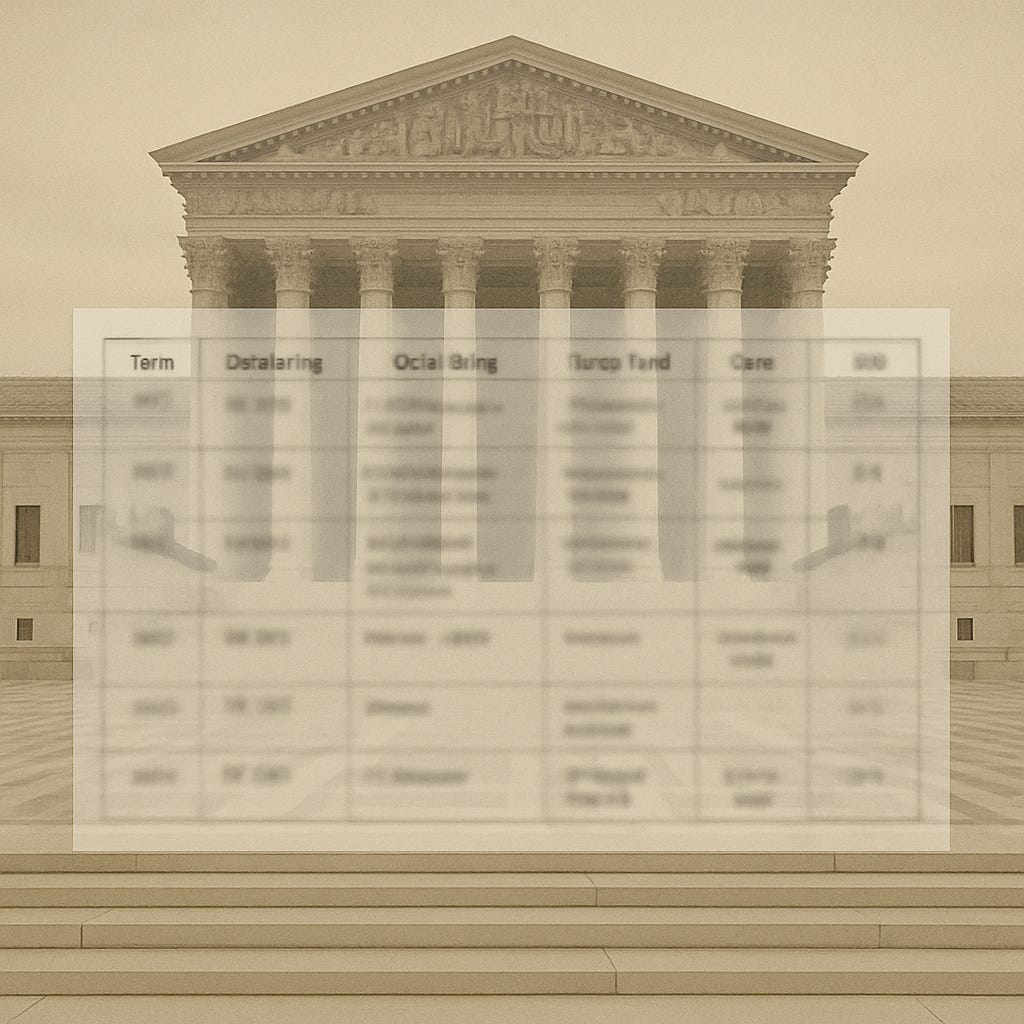Things to Read This Week (7/7)
NYT discussion, shadow docket database, conflict of laws and more
“There’s Just Too Much Lawlessness”: Three Legal Experts on an Embattled Supreme Court. Kate Shaw, Steve Vladeck, and I discuss the end of the term in the New York Times.
From Kasetellec & Taboni: “The Supreme Court Shadow Docket Database provides the first comprehensive dataset on the Court’s use of the shadow docket. The database contains information on every order the Court issued between the 1993 and 2024 terms.” Plus the accompanying paper.
Agenda Control and Precedent, by Tom Schmidt. Among other things, argues that “Five votes, rather than the typical four, should be required to grant certiorari in a case presenting the question whether a precedent should be overturned.” I would prefer to see the opposite rule — three, rather than four — because lower courts are supposedly disempowered in this area, but a good topic in any event.
Choice of Law and Statutory Specifications of Scope, by Kim Roosevelt. The latest in an important scholarly debate about the draft Third Restatement of Conflict of Laws (Roosevelt is the lead reporter). Sharply critical of Carlos Vasquez, Non-Extraterritoriality (and to a lesser extent of earlier objections by Lea Brilmayer). Linked here without endorsing either side.
Guido Calabresi (!) has a new article, The Proper Role of Equality in Constitutional Adjudication: The Cathedral’s Missing Buttress. “The most difficult and divisive issue in American constitutional law is how to deal with fundamental rights that are not specifically protected in the Constitution. At times, courts have afforded such rights near-absolute protection against infringement. At other times, courts have declined to provide such rights any constitutional protection. Both approaches are misguided. Instead, as argued by Justices Antonin Scalia and Robert H. Jackson, and Professor John Hart Ely, laws infringing these rights should be invalidated if they burden only some in society while leaving the rights of the enacting majority unimpeded.”



I like the exclamation point after Guido Calabresi's name. Writing a 50-page article is pretty impressive at age 92. And he's already tenured!